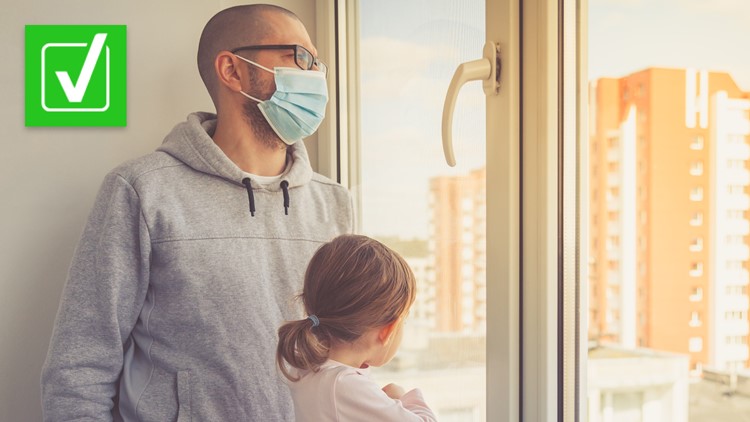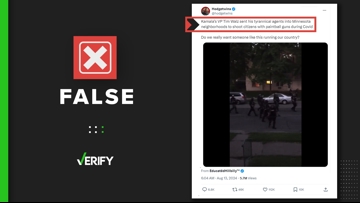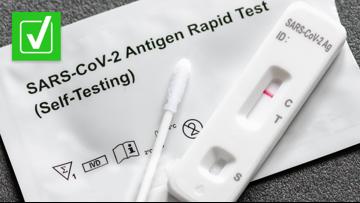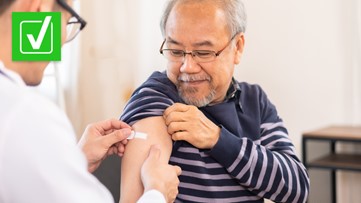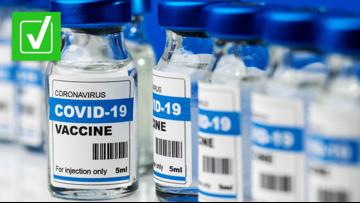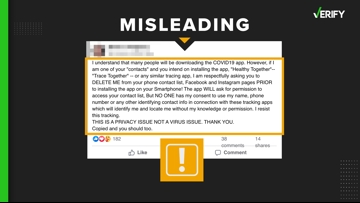On Dec. 27, the Centers for Disease Control and Prevention (CDC) changed the recommended quarantine time for people who test positive for COVID-19, regardless of their vaccination status, from 10 to five days.
But the new guidelines for those who have been exposed to the virus vary according to the type of vaccine you received, when you received a full dose, and also if you are boosted.
THE QUESTION
Are the CDC's new guidelines for COVID-19 exposures the same for the unboosted and unvaccinated?
THE SOURCES
- Centers for Disease Control and Prevention
- Dr. Saralyn Mark, former senior medical advisor at the White House and current lead COVID-19 spokesperson for the American Medical Women’s Association
- Dr. William Schaffner, professor of preventive medicine and infectious diseases at Vanderbilt University Medical Center
THE ANSWER
Yes, if you’ve been exposed to COVID-19, CDC rules are the same if you're unvaccinated or you haven't received your booster. Five months have to pass before you can get a booster for Pfizer, six months for Moderna, and two months for Johnson & Johnson.
WHAT WE FOUND
On Dec. 27, the CDC announced an update to their COVID-19 isolation and quarantine policy for the general public. For people who test positive, the guidance changed for everyone, regardless of vaccination status.
For anyone exposed to the virus, the rules were different for those who had been vaccinated or boosted. CDC rules state that if you have been boosted OR completed the primary series of Pfizer or Moderna vaccine within the last six months OR completed the primary series of Johnson & Johnson vaccine within the last two months, you should:
- Wear a mask around others for 10 days.
- Test on day five, if possible.
- If you have symptoms, stay home until symptoms or a fever disappears.
If six months have passed since you completed the primary series of Pfizer or Moderna vaccine and are not boosted OR completed the primary series of J&J over two months ago and are not boosted OR are unvaccinated, you should:
- Stay home for five days. After that continue to wear a mask around others for five additional days.
- If you can’t quarantine you must wear a mask for 10 days.
- Test on day five if possible.
- If you have symptoms, stay home until symptoms or a fever disappears.
Dr. William Schaffner told VERIFY this means people who have been boosted have greater protection from the virus, so the guidance is more lax for people recently vaccinated or boosted.
Currently, the CDC defines an individual as fully vaccinated if it had been two weeks after their second dose in a two-dose series or two weeks after a single-dose vaccine.
The CDC says people are not considered fully vaccinated against COVID-19 “if they have not completed vaccination, cannot be vaccinated, or are not eligible for vaccines, including children less than 5 years of age.”
Dr. Saralyn Mark told VERIFY in an email it is easy to confuse when someone becomes “fully” vaccinated, given the concern for the fast-spreading omicron variant, which has become smarter at evading antibodies.
“There is ongoing discussion to what is considered 'fully vaccinated.’ Should we rename the 'booster' to actually be considered the third dose in the vaccine series? We are living in a global experiment and we are learning more every day,” Mark said. “This is an uncomfortable place to be since we have not really experienced this to this extent in our lifetimes.”
The CDC and the World Health Organization say being vaccinated provides greater protection against severe illness and hospitalization and helps reduce the likelihood of someone spreading COVID-19, but it does not eliminate the risk entirely.
More from VERIFY: The 5 most-read COVID-19 VERIFY stories in 2021

